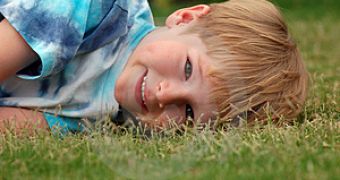Researchers from the University of Illinois have recently conducted a study that, as published in the journal Applied Psychology: Health and Well-Being, shows that kids diagnosed with attention-deficit/hyperactivity disorder (ADHD) might benefit from spending time outside.
Activities such as playing the grass could actually diminish ADHD symptoms for affected kids than those who play regularly indoors or in built outdoor environments.
Symptoms include poor impulse control, severe difficulty concentrating and hyperactivity.
"On the whole, the green settings were related to milder overall symptoms than either the 'built outdoors' or 'indoors' settings," stated study researcher Andrea Faber Taylor, a University of Illinois teaching associate.
Previous studies have shown that brief exposure to green outdoor spaces, such the park, playground or backyard, improves concentration and impulse control in children and adults without ADHD.
This study, however, shows that playing in green outdoor places daily or several times a week would also be the key to milder ADHD symptoms, as it acts to improve concentration and impulse control.
Although many children with ADHD are medicated, most “would benefit from a low-cost, side-effect-free way of managing their symptoms,” wrote the researchers at the University of Illinois.
They also looked at the children’s age, sex, formal diagnosis (ADD or ADHD) and total household income. However, they found no significant differences between boys and girls or income groups in respects to play settings and overall symptom severity.
ADHD is the most commonly studied and diagnosed psychiatric disorder in children, affecting about 3 to 5 percent of children globally. In the U.S. only, there are 4.4 million children diagnosed with ADHD.
The aforementioned study was performed on 400 children diagnosed with the developmental disorder, and data from a national, online survey from 2004 consisting of parents of children with ADHD.

 14 DAY TRIAL //
14 DAY TRIAL //